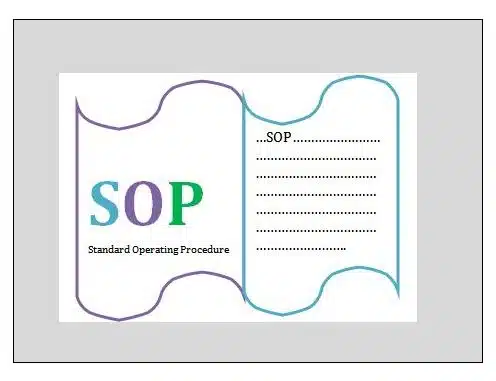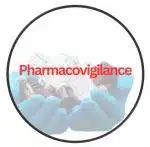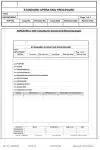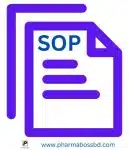“Learn about SOP in the Pharmaceutical Industry – Standard Operating Procedure for enhanced efficiency, compliance, and safety.”
Table of Contents
What is SOP?
SOP stands for Standard Operating Procedure. An SOP is a document that outlines a set of step-by-step instructions or guidelines for carrying out a specific process or task within an organization. It provides a standardized approach to ensure consistency, quality, and efficiency in operations.

SOPs are typically used in industries where processes need to be well-defined and controlled, such as manufacturing, healthcare, pharmaceuticals, research laboratories, and various other sectors. They serve as a reference tool for employees, clearly defining the required actions, methods, tools, and responsibilities associated with a particular activity.
Key components of an SOP in the Pharmaceutical Industry may include:
- Objective: A clear statement of the purpose and goal of the procedure.
- Scope: The specific activities or processes to which the SOP applies.
- Responsibilities: Roles and responsibilities of individuals involved in executing the procedure.
- Materials and Equipment: List of necessary materials, equipment, and resources required to carry out the task.
- Procedures: Detailed step-by-step instructions, including specific actions, measurements, and timing.
- Safety Precautions: Guidelines for ensuring safety during the execution of the procedure, including protective equipment, handling of hazardous materials, and emergency protocols.
- Quality Control: Procedures for quality checks, inspections, and documentation requirements to ensure compliance with standards and regulations.
- References: Relevant references, such as related documents, regulations, or guidelines that support the SOP.
SOPs are essential for maintaining consistency, ensuring compliance with regulations, reducing errors, promoting safety, and facilitating training and knowledge transfer. They are living documents that should be regularly reviewed, updated, and improved to reflect changes in processes, technology, or regulations.
Overall, SOPs provide a structured and standardized approach to work, helping organizations achieve efficiency, quality, and regulatory compliance.
See also to know how to prepare SOP: SOP of SOP in Pharmaceuticals Industry
Importance of SOP in the Pharmaceutical Industry
Standard Operating Procedures (SOPs) are of utmost importance in the pharmaceutical industry. Here are some key reasons why SOPs play a critical role:
- Quality Assurance: SOPs ensure consistent quality in pharmaceutical processes by providing clear and standardized instructions. They outline the correct procedures to be followed for various tasks, such as manufacturing, testing, packaging, and distribution. Following SOPs helps maintain product quality and ensures compliance with regulatory requirements.
- Regulatory Compliance: The pharmaceutical industry is subject to strict regulations from various regulatory bodies, such as the Food and Drug Administration (FDA) in the United States and the European Medicines Agency (EMA) in Europe. SOPs help organizations meet these regulatory requirements by establishing documented procedures that align with current good manufacturing practices (cGMP) and other applicable guidelines. Compliance with SOPs demonstrates a commitment to quality and safety.
- Safety and Risk Management: Pharmaceuticals involve complex processes and handling of potent substances, including active pharmaceutical ingredients (APIs) and chemicals. SOPs provide detailed instructions on handling, storage, and disposal of materials, ensuring the safety of employees and minimizing the risk of accidents, contamination, or product mix-ups. They also guide the implementation of safety protocols and help prevent errors that could compromise patient safety.
- Training and Knowledge Transfer: SOPs serve as essential training tools for new employees, helping them understand the processes and procedures followed within the organization. They provide step-by-step instructions, ensuring consistency and minimizing variations in operations. SOPs also facilitate knowledge transfer between team members and departments, ensuring that critical information is captured and shared effectively.
- Efficiency and Productivity: Well-defined SOPs help streamline processes, reduce errors, and enhance productivity. They provide a reference point for employees, eliminating ambiguity and ensuring that tasks are performed consistently and efficiently. SOPs outline the required equipment, materials, and resources, minimizing delays and improving workflow.
- Continuous Improvement: SOPs are living documents that can be regularly reviewed and updated to reflect evolving best practices, industry standards, and regulatory changes. By monitoring adherence to SOPs, organizations can identify areas for improvement, address deficiencies, and implement corrective actions. This fosters a culture of continuous improvement, ensuring that processes remain up-to-date and aligned with industry advancements.
Advantages of SOP in the Pharmaceutical Industry
Consistency and Quality: SOPs ensure that processes are executed consistently, leading to reliable and high-quality products. This is crucial in the pharmaceutical industry where even small deviations can have significant impacts on product safety and efficacy.
Regulatory Compliance: SOPs help companies adhere to strict regulatory requirements set by health authorities such as the FDA (U.S. Food and Drug Administration) and EMA (European Medicines Agency). Having well-documented SOPs can simplify audits and inspections, reducing the risk of non-compliance issues.
Risk Reduction: SOPs outline best practices and safety protocols, minimizing the risk of errors and accidents during manufacturing, testing, and other critical processes. They provide clear instructions on how to handle deviations and unexpected situations.
Training and Onboarding: SOPs serve as valuable training tools for new employees, ensuring they learn the correct procedures efficiently. They also provide a reference for existing staff to refresh their knowledge and skills.
Efficiency and Time-saving: SOPs streamline operations, reducing the time and effort required for decision-making and problem-solving. When employees follow established procedures, processes become more efficient.
Documented Evidence: SOPs create a comprehensive record of activities, making it easier to trace the history of a product or process in case of investigations or recall.
Please Read Also: What is Pharmacovigilance?
Disadvantages of SOP in the Pharmaceutical Industry
Rigidity: Overly strict adherence to SOPs can stifle creativity and flexibility, hindering innovation in certain areas. This can be a drawback in a rapidly evolving industry where adaptation is vital.
Outdated Procedures: If SOPs are not regularly reviewed and updated, they may become obsolete due to changes in regulations or advancements in technology. This can lead to non-compliance and inefficiencies.
Complexity and Length: SOPs can become lengthy and intricate, making them difficult to understand and follow. This might result in employees skipping important details or misinterpreting instructions.
Resistance to Change: Employees might resist following SOPs, particularly if they perceive them as time-consuming or unnecessary. This resistance can undermine the purpose of having SOPs in place.
Human Error: While SOPs aim to minimize errors, reliance solely on written instructions cannot eliminate the potential for human error, especially if employees are fatigued or under stress.
Costs and Resources: Developing, implementing, and maintaining SOPs require significant resources, including time, money, and expertise. Smaller companies might find it challenging to allocate these resources effectively.
Overall, SOPs play a crucial role in maintaining consistency, quality, and compliance in the pharmaceutical industry. To maximize their benefits, companies should regularly review and update SOPs, encourage a culture of continuous improvement, and provide adequate training to ensure employees understand and follow the procedures correctly.
Conclusion:
Overall, SOPs are crucial for maintaining quality, ensuring regulatory compliance, enhancing safety, facilitating training, improving efficiency, and driving continuous improvement within the pharmaceutical industry. They are an integral part of establishing robust quality management systems and are essential for organizations to meet the expectations of regulators, customers, and patients.
Please Read Also: GMP Rules for Pharmaceutical
For Editable SOPs in Word format, contact us on info@pharmabossbd.com

Abdus Sobhan Salim is professional experienced pharmacist in pharmaceuticals, author and founder of pharmabossbd.com, the first Bangladeshi pharmaceutical blogger since 2019.



